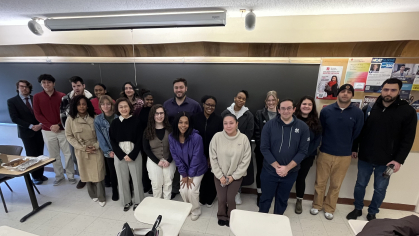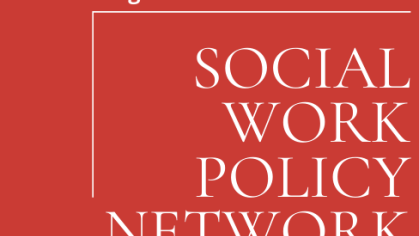The Direct Practice Immersion Sequence consists of a series of courses that MSW students must complete during their first year of study. Utilizing a social justice lens informed by Barbara Love’s liberatory consciousness framework, the sequence enhances students’ interpersonal and listening skills, empathic understanding, their use of professional self, and their ability to recognize their positionality and how it affects their practice at both the micro and macro levels. By complementing knowledge and skill development in practicum sites, the sequence emphasizes (a) the importance of the relationship between the client and the social worker in facilitating change, and (b) the links between micro and macro-level interventions. This immersion prepares students for their advanced year of study, whether they build on their direct practice knowledge and skills to develop a specialization in either clinical social work or management and policy.
The sequence consists of four courses:
Practice with Individuals, Families, and Groups
This course approaches social work practice from a generalist perspective, utilizing a problem-solving process that engages individuals, families, and small groups. This process integrates ecological and human rights perspectives and introduces various theoretical frameworks commonly used in generalist practice. It includes skills such as developing professional relationships, collecting and assessing data, defining problems, employing appropriate practice research knowledge, setting goals, planning and contracting, identifying alternative interventions, selecting and implementing suitable courses of action, utilizing empirical measurement to monitor and evaluate outcomes, and concluding interventions. Emphasis is placed on the facilitative and constraining effects of the sociocultural context surrounding practice.
Practice with Communities and Organizations
This course engages students in studying communities, organizations, and their interrelationships, providing foundational skills in macro social work practice. This includes developing professional relationships, navigating organizational structures and cultures, empowering and collaborating with communities, establishing leadership skills, increasing effectiveness, identifying and addressing ethical dilemmas, allocating resources equitably, understanding needs assessments, discerning and leveraging policies and legislation, and strategizing for change aimed at justice. Emphasis is placed on the facilitative and constraining effects of the social context surrounding macro practice. Special attention is directed toward human diversity and a multicultural society.
Practicum Learning Seminar
The course introduces students to the interpersonal communication skills necessary for engaging and assessing clients and client systems as they enter practicum learning. Topics covered include understanding the importance of the professional use of self, developing empathy skills, creating a therapeutic alliance, and applying counseling skills while considering the client's larger social environment. The classroom serves as an experiential learning lab environment that involves significant use of exercises, role-plays, written analyses and reflections on these, and client simulations to practice the concepts and skills learned.
Reflective Practice Seminar
This seminar integrates students’ practicum experiences with the knowledge, values, and skills acquired in the classroom. With a focus on self-in-practice, the seminar allows students to engage in discussion, reflection, and critical thinking about their positionality and evolving professional identity related to all areas of social work practice. Using the classroom as an experiential learning environment, students learn through discussions, exercises, role-plays, simulations, written analyses, and reflection.







